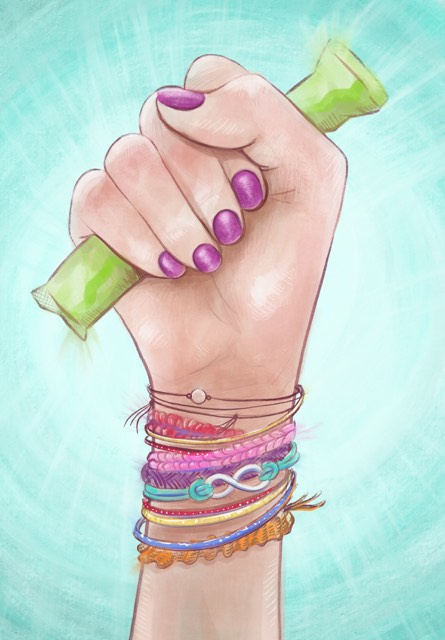Free the feminine hygiene products
Women should not be shamed for having their period, they should be supported.
Menstrual products are used during a woman’s period in order to soak up blood and allow her to go about her daily life in a clean and healthy way. There, I said it. Is it really that big of a deal to discuss? Is it? When you think about it, it’s a medical aspect of women’s lives and there shouldn’t be a stigma around discussing it. Women should not be shamed for their monthly cycles; without them, the human population would die out. So really it’s essential to our existence, so we may as well feel comfortable talking about it.

Now that we can speak like adults on this topic, let’s put it out in the open what women go through each month. Don’t worry, I’m not going to bombard anyone with gory details of a woman’s period. I’m talking about how much money a woman spends on menstrual products each month. Jezebel.com estimates a woman spends about $120 a year on tampons and pads. These products are not exempt from sales tax rather; they have a luxury tax applied to them. A luxury tax is simply a sales tax applied to any product that is deemed “not essential” by the government. This sales tax is not applied to products such as medication, food, and even clothes in some states because they are “necessities.” Only eleven states in America consider menstrual products to be “necessities” and exempt from the sales tax.
According to The Washington Post, New York City Council member Julissa Ferreras-Copeland “whipped out a small, wrapped tampon and waved it in the air” while declaring “they’re as necessary as toilet paper” in June of 2016 when New York City became the first city in the United States to stock free feminine hygiene products in all public schools, prisons and homeless shelters. In 2017, California and Illinois passed similar legislation and began stocking free feminine hygiene products in public schools. This legislation cannot spread fast enough and needs to be enforced throughout the United States.
Menstruation and the price of tampons hinders every girl’s education in one way or another. If she can afford feminine hygiene products, she must raise her hand to ask to go the bathroom during class before discretely hiding the tampon for fear of being shamed. If she, or her family, cannot afford tampons she must raise her hand and ask to go to the nurse which could spur a teacher to publically ask her why, once again shaming her. She will then have to make her way to the nurse’s office and ask for a free tampon before actually using the bathroom while her male counterpart is sitting in class getting more information and having more of an opportunity to learn. Many girls will simply skip school during the week of their period because they are too embarrassed to ask the nurse for free tampons, or they simply cannot afford them and free tampons aren’t an option at their school.
Girls should not be ashamed of their menstrual cycles. This shaming has nothing to do with embarrassed middle school girls and everything to do with our society. Menstruation is a medical aspect of a woman’s life which enables humanity to produce offspring. Women should not be shamed for having their period, they should be supported. Thus, tampons which are equal to and as necessary as toilet paper should be free in public places, especially schools.






















